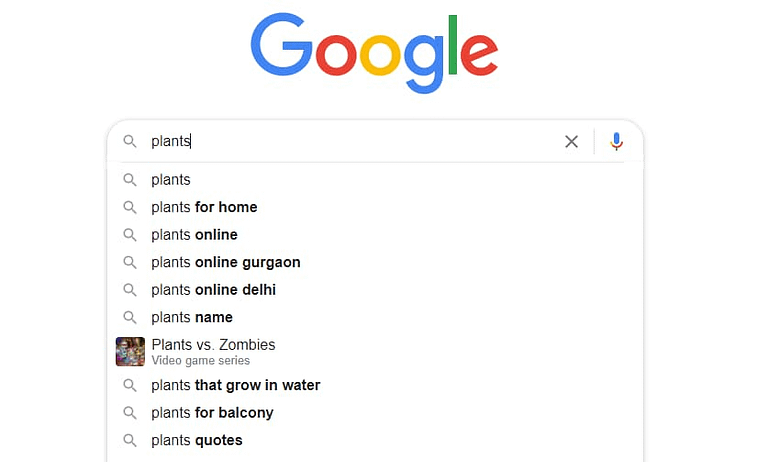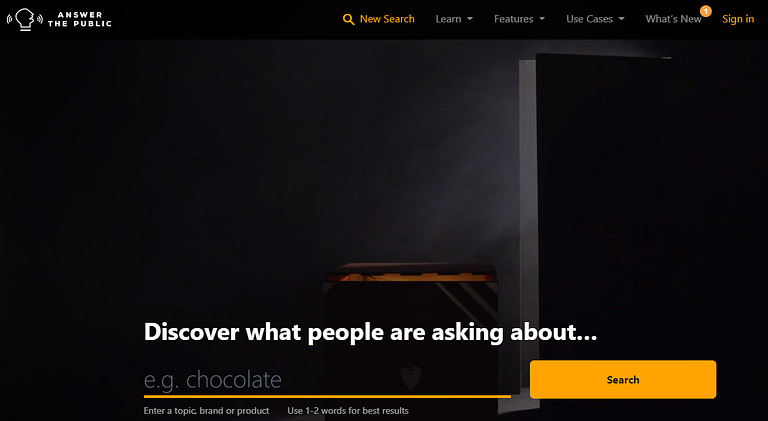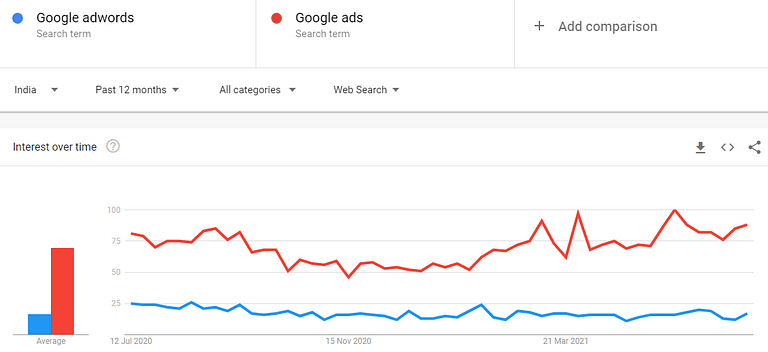SEO Keywords
What are SEO Keywords?
SEO keywords (also known as “keywords” or “keyphrases”) help you achieve a higher place and more relevant traffic in the SERP. It happens when you add SEO keywords to your online content. Keyword research is a process to find these keywords based on search volume, competition, commercial intent, business fitness and trend.
Why are SEO Keywords important?
A one-line answer to this – to rank higher for keywords important for your website.
Let me explain this in a little detail:
Before you can plan an effective SEO campaign for your site – you first should understand what your business is about, who all targeted customers are, and your business goals.
Too many people miss this step because keyword research is a time taking process. And people think they don’t need to invest time in the keyword research process when they already know what they want to rank for?
An important thing you need to understand here is – what you want to rank for and what your targeted customers want are two different things.
Focusing on your audience and then using real-world keyword data can help you run a successful SEO campaign rather than just focusing on some random keywords.
For example:
Airifier (a Gurgaon-based plant’s e-commerce shop) wants to use SEO to increase its organic visibility.
To help them, you’ll need to understand a little more about their customers.
And to do so, you might ask questions such as:
- What type of plants, air-purifying plants, flowering plants, indoor-outdoor plants, etc., people are searching for.
- Who is searching for these terms?
- When are people searching for plants, air-purifying plants, flowering plants, etc.?
- Are there seasonality trends throughout the year?
- How are people searching for air-purifying plants?
- What words do they use?
- What questions do they ask?
- What devices do they use?
- Why are people looking for air-purifying plants?
- Are individuals looking to purify indoor air quality or just looking to decorate their homes?
- Where are potential customers located – locally, nationally, or internationally?
And finally – how can you help provide the best answers for the questions people are searching for?
Asking these questions is an important step to create content that not only satisfies your audience but improves organic rankings.
Find Keywords Ideas
You must be wondering,
Isn’t “plants” a keyword you have already found?
I agree with you; that’s a pretty straightforward keyword.
Also, search volume for single-word keywords is much higher than long tail keywords (usually 4+ words).
Anyone would like to target keywords with high search volume.
Let me tell you the harsh reality about the single-word keywords (plants) – they are extremely hard to rank for, and also, they might not be good keywords for your website.
Isn’t it possible to rank for single-word keywords like that?
I’m not saying that.
But even if you do everything right, it can take years for you to rank for highly competitive single-word keywords.
Let me take an example to explain another big problem with single-word keywords:
There are two customers-
Customer 1: Searches for a single word, “shoes.”
No doubt the keyword “shoes” will have a very high search volume, but the customer’s intent isn’t clear here.
Does the customer want to see some shoe pictures? Order shoes? Find a nearby shop?
Customer 2: Searches for a long tail keyword “red color running shoes for kids.”
Of course, fewer people are searching for this query compared to the only “shoes.”
However, the customer’s intent is very clear, and it looks like that customer has already made up his mind to purchase this product.
Long-tail keywords have more clear intent and less competition because fewer people are searching for them.
The higher the search volume for a keyword is, the harder it is to rank for vice-versa.
This is known as keyword difficulty.
So for people who are new to SEO, long tail keywords are usually the best keywords to start with.
With that, here’s how to find long tail keywords for SEO.
Google Suggest
Head over to Google, type your seed keyword (e.g., plants)
And here’s what Google Suggest will do. But, again, these are already popular searches on Google.
If your site is new, then the keyword “plants” may be too competitive for you.

Answer The Public
Another fantastic tool you can use to discover question-based long tail keywords – people are asking related to your business is AnswerThePublic.com.
The second tool is “Question DB.”

The second tool is “Question DB.”

Seed Keyword
The problem with most keyword research tools is that they spit out keywords that are super related to your seed keyword.
If you want to find creative keywords, use a free SEO tool called seedkeywords.com

And share it with your email subscribers or social media followers to get to the keywords your users would search for.

E-commerce Keywords
Are you running e-commerce?
Use Amazon Autocomplete to find e-commerce keywords.
Alternatively, you can also use keywordtool.io

Alternatively, you can also use keywordtool.io

Find keywords that your competitors already rank for
SEMrush
How about getting keywords that your competitors are already ranking for?
Yes, who doesn’t want that, right?
SEMrush, Ahref, or Moz Pro can provide you with all those SEO keywords your competitors are ranking for.
But one important thing you have to keep in mind – if your site doesn’t have a ton of Domain Authority, then don’t go after big authoritative sites.
Always find a website in your league. That way, you’ll find keywords that you have a decent chance to rank for.

Find Volume and Commercial Intent
Google Keyword Planner is the best tool for finding search volume and commercial intent for the keywords.
Because the data comes none other than from Google.
But there are two big issues with the Keyword Planner Tool:
- You need to set up a Google Ads account to use it.
- Unless you’re running a campaign, it will show you only search volume ranges.
But you can easily deal with these issues
First, go ahead and set up your Google Ads account.
You don’t need to run paid campaigns to use it.
As long as your account is set up, you’re good to go with it.
For example, we’re not currently running any Google ads campaign but still can access the tool:
It will show you ranges like this:

Then you can add the keyword to the plan, and the keyword tool will show you the exact impressions you’ll get (which is monthly search volume):

Discover Popular Keywords with Google Trends
What’s the point in targeting a keyword – if it’s not popular.
Keyword search volume is important, but it doesn’t tell you the whole story.
Search volume doesn’t tell you if the keyword is trending. Keyword trends are even more important in the long run.
Another free tool, Google Trends, can help you identify the keyword’s popularity.

For example, I got stuck with two keywords, “Google ads” and “Google Adwords.”
A lot of people still call it by its old name, “AdWords.”
Looking at the search volume even confused me more about which term is better to target.
But when I looked into Google Trends, it clearly shows how the term “Google Ads” is growing in popularity over “Google Adwords.”

You publish content hoping that it’d keep doing well for a long time. Imagine if you miss this step and choose to target a keyword that is slowly dying in popularity (Google Adwords in this example) – your content will become extinct too.
Additionally, you can also use BuzzSumo to find topics and keywords.

BuzzSumo isn’t exactly known as a keyword research tool, though you can still find content ideas, and it will show you popular content on your keywords.
You can easily steal keywords from trending topics.

Search Console
Search Console tells you the performance of your SEO campaign.
It also reports you all the keywords you already rank for.
In the reports, focus on the keywords – where you get a lot of impressions but not clicks.
These are the terms you’re already familiar with. But if you dig in deep, you may also get surprising keywords.
It’s best to produce a new piece of content around those keywords.
Or
You can also optimize the already existing content.
For example, Google likes my website for the keyword “SEO Analyst.”
You can see the number of impressions for the keyword in the performance report:

Now I can create a new page 100% optimized around “SEO glossary.”
And that page can have a great chance to rank on the first page for that term.
How to use SEO Keywords in your content
Now that you have found the list of appropriate keywords – it’s time to produce the content.
First, choose your main keyword.
Don’t go after many keywords; it hardly works.
Now use your main keyword a handful of times in your content. You don’t need to go overboard and repeat your keyword a hundred times.
That way, Google will know that your page is about that keyword.
Now make sure your main keyword is appearing in the title and the URL.

Then, use your main keyword in the meta description.
Although Google doesn’t care about if the keywords appear in the meta description, it helps your result stand out in the middle.
However, there are two big benefits of it:
A well-written description can increase CTR
Google bolds the terms if it appears in the description and that can also lead to increased CTR
Next, sprinkle in a few variations of your main keyword in the content.
For example, my page is optimized for the keyword “Facebook organic reach.” And I added a few variations of the main keyword “Facebook post reach” and “Facebook organic reach decline” on the page.

To find keyword variations – head over to searches related to features at the bottom of the Google SERP.

Use Internal Links
A brand new page has no authority or backlinks.
But if you link out to this page from other pages of your website, that’ll instantly pass on some authority to your new page.
Don’t forget to use a relevant keyword in the anchor text at the time of linking your page.
That’ll help Google to understand the specific topic of your page.
Previous
Next

